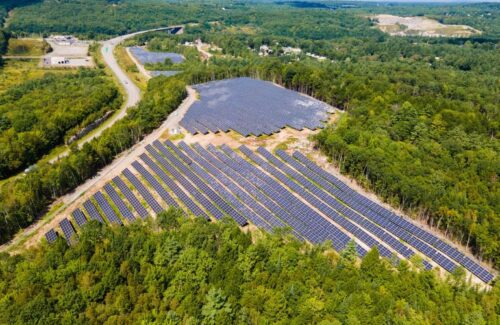
Syncarpha Capital
The Georgia Solar Energy Industries Association (GASEIA) is applauding state Sen. Jason Anavitarte for sponsoring SB 210 to improve and expand community solar in Georgia, while updating portions of the law pertaining to net metering. This is a continuation of Georgia’s Cogeneration and Distributed Generation Act of 2001, the expansion of the solar market by the Georgia Public Service Commission in 2013, and the passage of the Georgia Solar Free-Market Act of 2015. The Georgia Homegrown Solar Act of 2023 builds on these successes to provide for (1) Updated Monthly Net Metering, (2) The Creation of Non-Profit Community Solar and (3) Enhanced Customer Data Access. The bill does not apply to electric membership cooperatives (EMCs) or municipal electric utilities.
The bill would allow tax-exempt customers, such as governments and non-profits, to aggregate demand from multiple locations and subscribe to an off-site solar facility under 3 MW.
As for net metering, the bill would increase the cap for non-residential systems from 100 kW to 125% of their maximum annual peak demand and from 10 kW to 15 kW for residential systems. SB 210 would allow utilities to set a $20 minimum monthly bill for solar customer, but ensure that any other fees are reasonable and do not discriminate against solar customers.
The rooftop solar program cap would be raised from 0.2% to 5% of the prior year annual peak demand to give markets time to mature. Once the threshold is reached, the Public Service Commission would determine a successor crediting mechanism for ongoing monthly net metering in this growing market.
“Georgia has seen amazing growth of the solar industry since the Georgia Public Service Commission expanded the solar market in 2013 with strong support from then-Chairman Bubba McDonald and Commissioner Tim Echols,” said GASEIA president Pete Corbett. “The Georgia General Assembly followed that up by passing the Solar Power Free-Market Act of 2015 from Representative Mike Dudgeon. Senate Bill 210 seeks to build upon these strong measures by improving the community solar market and updating net metering provisions in law. GASEIA members greatly appreciate Senator Anavitarte, other Senate sponsors, and the entire Georgia General Assembly for their support, input, and consideration.”
News item from the Georgia Solar Energy Industries Association





1. Installation of a 16 SEER energy-efficient HVAC system.
2. Upgrade of insulation to R40 to improve thermal efficiency.
3. Replacement of all windows with energy-efficient models.
4. Purchase and installation of three energy-efficient water heaters.
5. Addition of a solar-powered attic fan to aid in ventilation.
6. Installation of 29 solar panels on my new roof to harness renewable energy.
Despite these substantial investments and the expectation of a significant reduction in my electricity consumption, I have noticed little to no decrease in my monthly electric bills. Perplexed and house poor.
Hello Kelsey,
Just now learning about your publication ! Thank you for writing this great article on
SB 210…much appreciated.
This is a very helpful article for my knowledge ramp-up with a non-profit in Atlanta. . Just subscribed to your newsletter….good to go.
Regards,
Chip Robison, PHARMD
Hi Kelsey,
Great article!
I got solar a couple of years ago. Net metering can help balance electricity supply and demand on the grid by allowing excess solar energy to be sent back to the grid when it is most needed. This can reduce stress on the grid during peak demand periods, improve reliability, and prevent blackouts.
well said